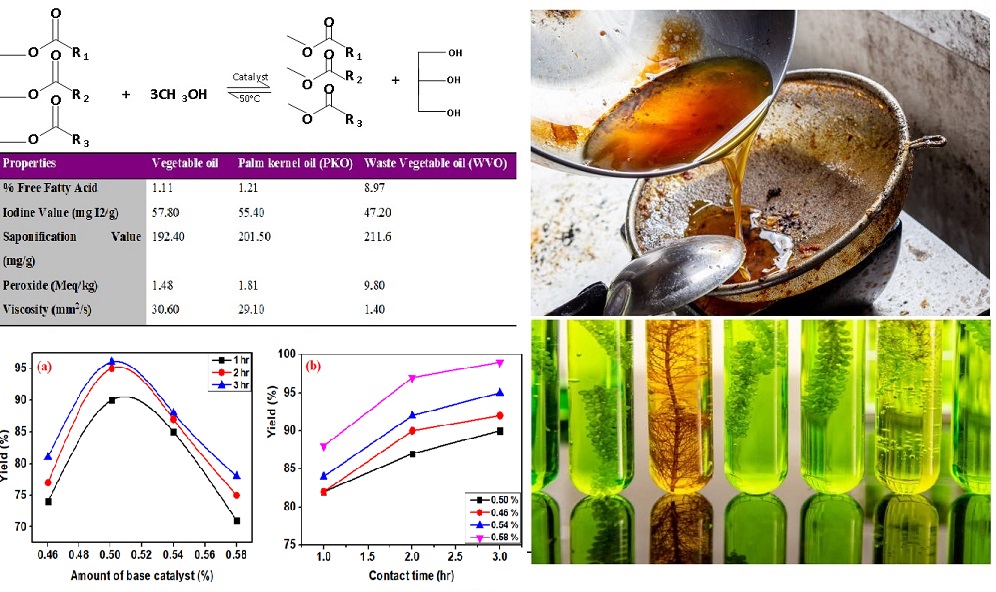
The use of active and recyclable catalysts is advantageous for catalytic biodiesel synthesis from waste vegetable oils which is in demand owing to frequent calls on environmental pollution and for clean renewable energy production. For this study, homogenous catalysts are effective at converting single-origin feedstocks low in free fatty acids (FFA) and water into biodiesel. Biodiesel production based on waste vegetable oil was carried out to establish an optimal catalyst régime. Acid-catalyzed transesterification and sequential base catalysis were used to convert waste vegetable oil to biodiesel at varying amounts of catalyst (0.46-0.58%) and different contact times (1-2 hr). Optimal yields were obtained at 2 hrs contact time and 0.50% amount of catalyst. Characterization tests conducted were specific gravity (0.8718-0.8935), flash point (117-1370C), viscosity (4.29-6.09mm2/s) and cetane index (40-43) values were within biodiesel specifications. The study, therefore, confirmed that acid-base sequential catalysis holds a lot of promise for the creation of affordable, environmentally friendly technologies. The biodiesel's characteristics were also in good agreement with American (ASTM D6571) fuel specifications. Therefore, the work recommends the utilization of acid (H2SO4) and base (NaOH) catalysis in the technologically enhanced conversion of waste vegetable oil into biodiesel.
Total file downloads: 24